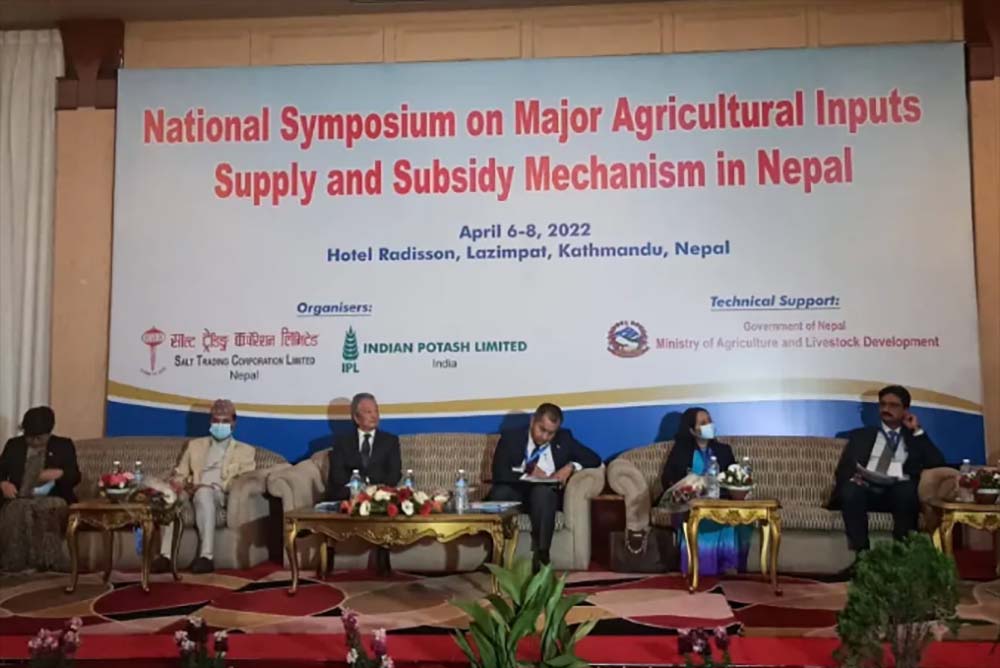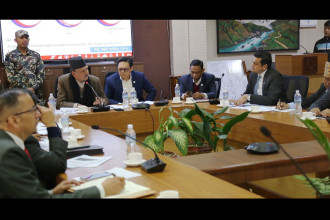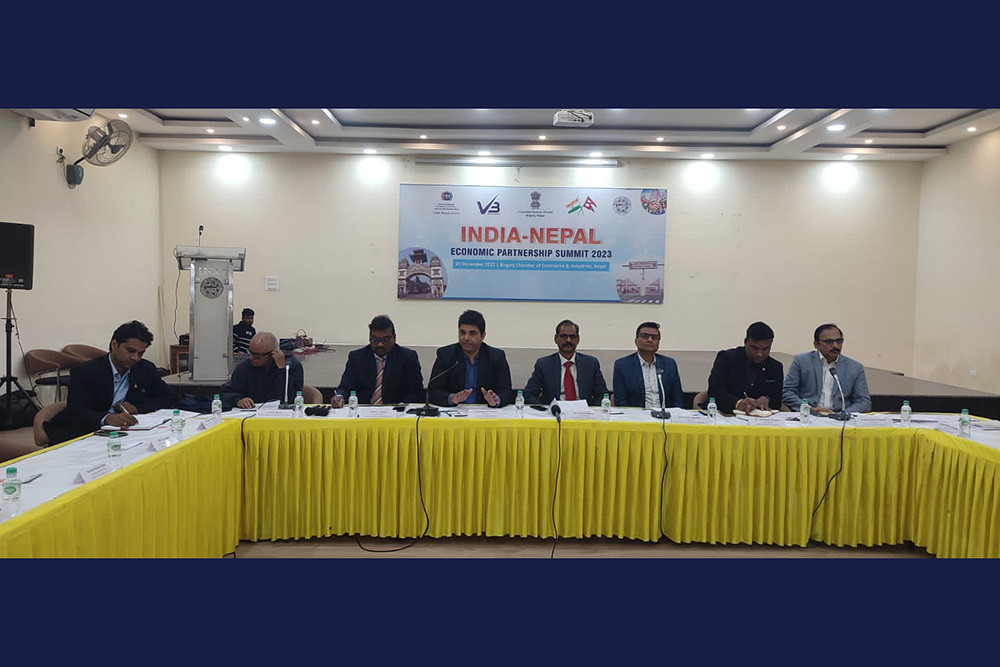
KATHMANDU: A three-day symposium kicked off in Kathmandu to deliberate on and come up with an appropriate conclusion regarding the use of improved varieties of seeds, fertiliser and agricultural implements for enhancing the soil nutrients and increase agriculture productivity.
The symposium is jointly organised by Salt Trading Corporation Limited and the Indian Potash Limited with the technical support of the Ministry of Agriculture and Livestock Development. The symposium will discuss a range of topics related to the modernisation of agriculture.
High-ranking officials of the Government of Nepal, provincial government officials, agricultural scientists, stakeholders and renowned agricultural scientists from India are taking part in the seminar.
Salt Trading Corporation Limited (STCL) has stated that the symposium has been organised with the objective of receiving suggestions and recommendations on issues related to the supply of major agricultural inputs (seeds, fertilisers, and machinery) and the subsidy mechanism and of discussing the issues related to international trade of major agricultural input. The symposium also aims to learn about the subsidy mechanism of inputs in India.
Group discussions will be held on dozens of topics in course of the programme. The topics include fertiliser policies and subsidy mechanisms in Nepal; general soil nutrients status of Nepal's farming land and types of plant nutrients required; current international market of fertiliser in relation to Diammonium Phosphate (DAP), Urea and Muriate of Potash (MoP) and how Nepal should prepare itself for the next one year; and present scenario of provincial agricultural input demand and supply, and challenges and prospects.
Also, discussions will be held on topics related to government subsidies in the agricultural sector, prevailing weaknesses and recommendations for present policy for output-oriented implications; and the present situation of farm mechanisation and the scope of agricultural machinery and agricultural tools.
Deputy Chief Executive Officer of STCL, Kumar Rajbhandari, said farmers can be benefitted when the agricultural scientists of Nepal and India share their knowledge and experience as the geographical conditions of both countries are nearly the same.
"In Nepal's context, basic production inputs such as irrigation, continuous supply of fertiliser, improved seeds, commercialisation of production, value addition, farm mechanisation for smallholder farmers, and agricultural credit subsidy are still not in sync," he said adding that this symposium has been organised against this backdrop and it is expected to provide valuable inputs for improving upon this situation.
The STCL is doing its best to increase agriculture production in the country by facilitating the import and supply of quality fertilisers, improved seeds and modern tools and machinery. The government has given the responsibility to the STCL for the import and supply of subsidized fertiliser.
The government expects that agriculture production can be increased through modernisation and improving the quality of soil and use of standard fertiliser, seeds and implements, ultimately leading to a growth in the income level of the farmers.
Rajbhandari said the papers presented, the conclusions and recommendations drawn up after rich discussions in course of the symposium, would help in transformation of Nepal's agriculture sector.
Addressing the inaugural session, STCL Chairman Kalyan Govinda Shrestha expressed the belief that the symposium participated by important stakeholders from Nepal and India will extend significant support to the development of the country's agriculture sector.
READ ALSO:
Published Date: April 7, 2022, 12:00 am
Post Comment
E-Magazine

Click Here To Read Full Issue
RELATED B360 National




